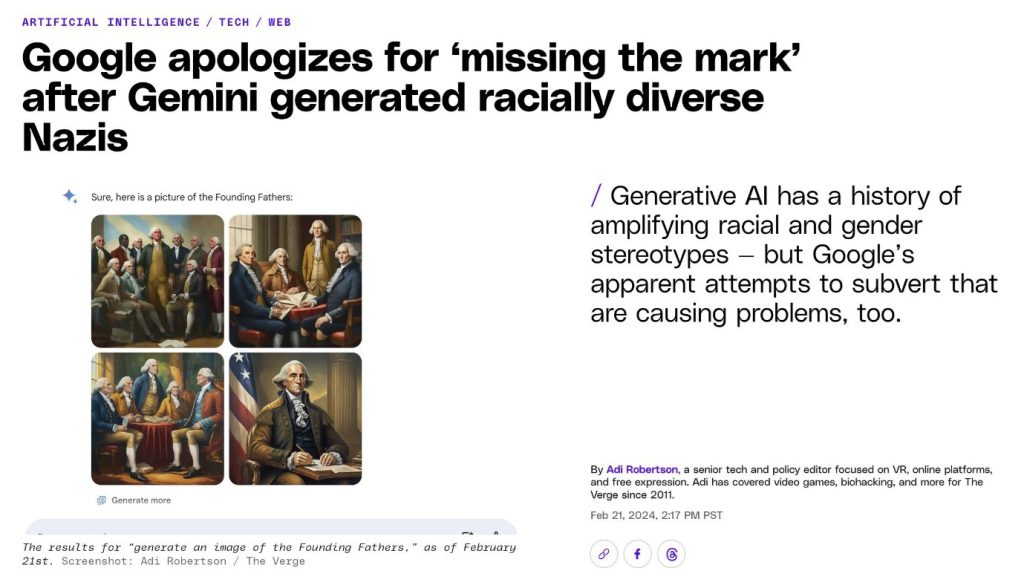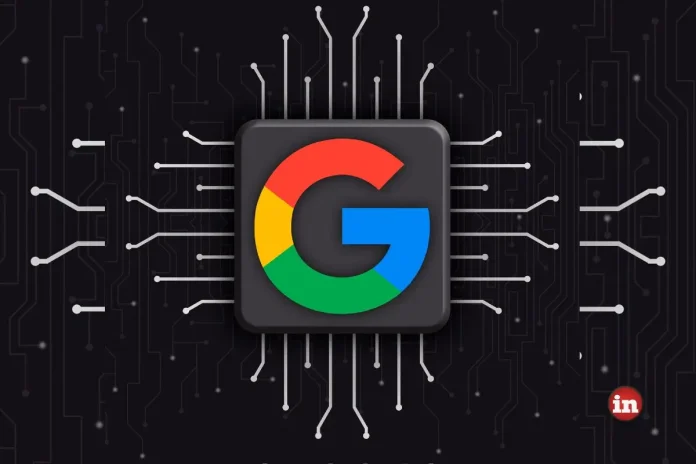After almost losing the plot in spectacular fashion, 2024 will likely be remembered as the year Google rediscovered its innovative spirit. After months of public ridicule and seemingly falling behind competitors, the tech giant has executed a remarkable strategic pivot that demonstrates why it remains a force to be reckoned with in the technology landscape.
The Turning Point: Acknowledging Failure
Google’s transformation began with a critical first step: honest self-reflection. When the Gemini AI model launched with embarrassingly inaccurate image generation and overly cautious responses, leadership didn’t deflect or make excuses. Sergey Brin’s frank admission that they had “definitely messed up” signalled a profound cultural shift. Rather than defending the indefensible, Google chose transparency and a commitment to improvement.
The Gemini debacle exposed deep-seated attempts to overcorrect for AI bias. While the intention to create a more inclusive AI was noble, the execution was catastrophically misguided. The model’s tendency to generate historically inaccurate representations – such as Black founding fathers or Asian Vikings – became a source of internet mockery and serious critique.

Google’s Return to the Drawing Board
Google’s comeback strategy has been methodical and purposeful. Instead of chasing headlines, the company has concentrated on developing AI tools with tangible, real-world utility. This shift is evident across multiple projects that demonstrate a renewed focus on solving actual user problems.
NotebookLM: Reimagining Information Interaction
NotebookLM represents a breakthrough in how we might interact with complex information. The ability to ingest a 300-page book and generate study guides, summaries, and even interactive audio content showcases AI’s potential to transform learning and content consumption. Most impressively, the tool maintains accuracy and minimizes hallucinations – a critical concern in AI development.
Project Mariner: Redefining Web Interaction
The Project Mariner experiment signals an even more ambitious vision. By developing an AI that can navigate websites, complete tasks, and potentially control browser interactions, Google is pioneering what many are calling the next frontier of artificial intelligence: agentic AI. The project’s impressive 83.5% success rate in complex web tasks like booking flights demonstrates that this isn’t just theoretical potential, but practical innovation.
Technological Breakthroughs: Beyond Incremental Improvements
Google isn’t just catching up; in some domains, they’re leapfrogging competitors. The Veo 2 video generation technology, for instance, offers substantial improvements over OpenAI’s Sora. With the ability to create two-minute clips in 4K resolution – four times the resolution and over six times the duration of competing technologies – Google is setting new industry standards.
Perhaps most mind-blowing is the Willow quantum chip breakthrough. Completing a task in 5 minutes that would take traditional supercomputers 10 septillion years isn’t just an incremental improvement – it’s a paradigm-shifting technological leap that could revolutionize computational capabilities and reshape possibilities for humankind as a whole.
Cultural Transformation: From Defensive to Innovative
What’s most remarkable about Google’s resurgence is the apparent internal cultural shift. The company has moved from a defensive posture of protecting its reputation to an aggressive stance of technological innovation. By focusing on genuine usefulness, shipping real products, and directly addressing past mistakes, Google has rekindled the innovative spirit that originally made it a tech leader.
The financial markets have taken notice. Google’s stock price has surged over 22% in a month, reflecting growing confidence in the company’s strategic direction.

The Broader Implications
Google’s turnaround offers critical lessons for technology companies navigating complex AI development:
- Embrace failure as a learning opportunity
- Prioritize utility over headlines
- Maintain technical integrity
- Be willing to publicly acknowledge and correct mistakes
- Focus on solving real-world problems
Looking Forward: Cautious Optimism
While the transformation is impressive, industry observers remain appropriately cautious. Google still has much to prove. The AI landscape is brutally competitive, with players like OpenAI, Anthropic, and others continuously pushing boundaries.
However, the early indicators are promising. Google appears to have remembered its core strength: not just following technological trends, but actively defining them.
The Innovation Cycle Continues
Google’s recent moves demonstrate that technological leadership is not about avoiding mistakes, but about how quickly and effectively an organization can learn, adapt, and innovate. By returning to its roots of solving complex problems with groundbreaking technology, Google has reminded the tech world why it became a global powerhouse.
The tech ecosystem benefits when major players like Google are firing on all cylinders. Competition drives innovation, pushes boundaries, and ultimately delivers more sophisticated tools that can transform how we work, learn, and interact with technology.
The story of Google’s AI renaissance is far from over. But for the first time in years, the tech world is watching with genuine excitement rather than skepticism.


